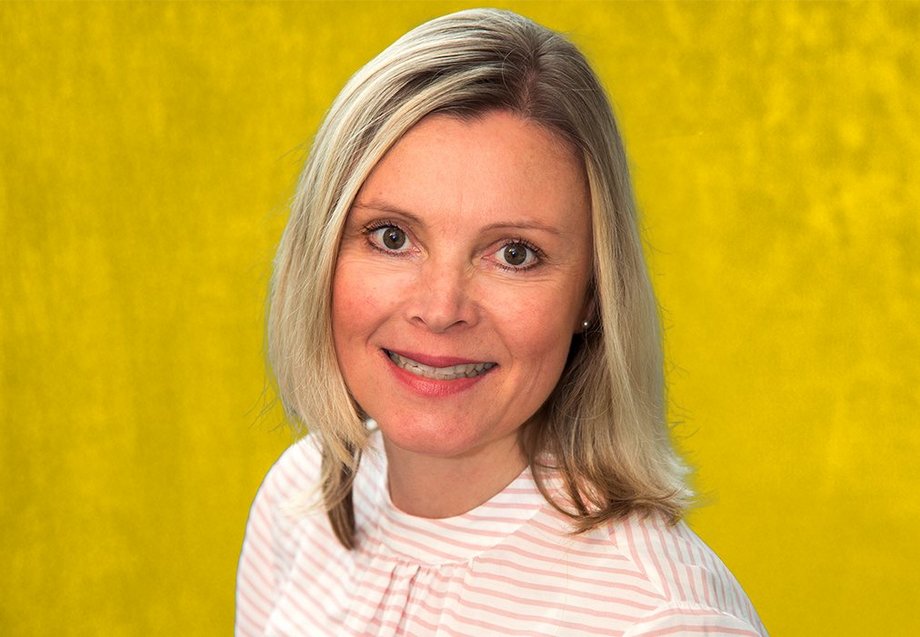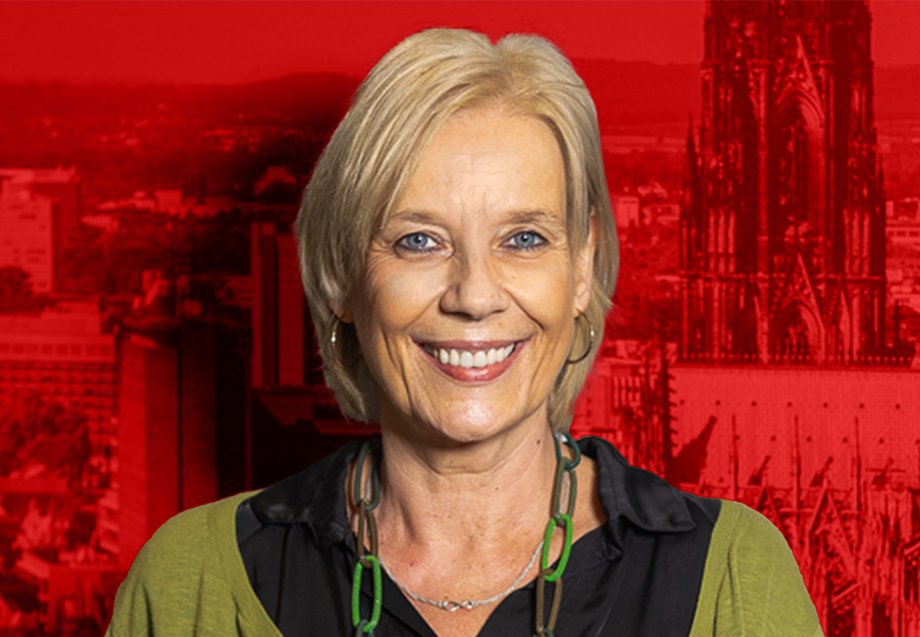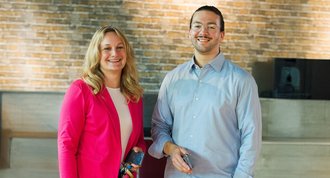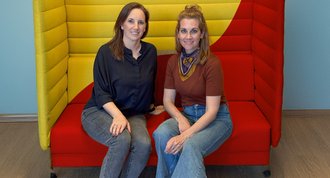
Sibylle von Bassewitz and Claudia Blum both work in different areas of our company's Travel and Tourism division. Both senior managers have reduced their working hours - for very different reasons.
 Sibylle von Bassewitz
Sibylle von Bassewitz
Sibylle von Bassewitz, Director Content Management at DERTOUR Deutschland GmbH, reduced her working hours in order to be able to support her parents in need of care. The additional freedom helps her to be more satisfied in her job.
"My parents' need for care prompted me to reduce my working hours. In acute phases, I reduced my working hours to 50 to 70 per cent for a short time, but for a good two years now, I've been working 80 per cent. I spend Fridays with my parents in a care centre in Sauerland and also help with the actual care there.
In the past, it would have been unthinkable for me to work part-time as a senior manager, but priorities have shifted and spending time with my elderly parents gives me a lot. I also find the change from desk work very positive.
The challenge is that the range of tasks hasn't fundamentally changed, and it's sometimes necessary to catch up in the evenings or at the weekend. My "Friday in care" is such a different world that I sometimes find it difficult to get back to work on Monday. However, the bottom line is that prioritising, delegating and letting go or even leaving things undone is much easier than before, as my working time is more concentrated.
My team, especially my four Head Ofs (team leaders), are extremely understanding and have made the transition to the 4-day week very easy for me. I think it has had a positive effect on them to some extent, as I trust them more and let go myself.
My boss always has my back and doesn't put any pressure on me if there are any delays. I experience many positive reactions to my reduction in working hours, especially when I explain the reasons.
Shifting the focus of your life a little and reducing your working hours helps you to let go at work and prioritise better. A strong team makes it possible to hand over issues and create space for yourself. This freedom in turn leads to greater satisfaction and creates a new perspective on your own job."
 Claudia Blum Image © Dirk Haller
Claudia Blum Image © Dirk Haller
Claudia Blum, Head of DER Travel and Tourism Partner Companies, DER Deutsches Reisebüro GmbH & Co. OHG Franchise, has returned to work part-time after a long period of illness.
"After a very serious illness, which involved being on sick leave for a long period of over a year, my employer "brought me back". That impressed and touched me, especially as I had been out of my job for a very long time. At the time, I was firmly convinced that I would never be able to work again, and certainly not in my management position. But then, when my line manager approached me very carefully and considerately and asked me if I could imagine going back to my job, I could imagine it after all.
I would like to praise DERTOUR for giving me the opportunity to return to my job step by step. My colleague, with whom I manage the team, was very supportive. Even during my period of illness, both my colleague and my line manager regularly contacted me and enquired about me, which was very encouraging.
When I came back, they made sure that I didn't overstretch myself. There is a risk of this, especially if you have high expectations of yourself. What's more, your colleagues have known you for a long time and understandably have certain expectations."
"The management team brought me back part-time after my illness and opened the doors for me. I didn't have to fight for it, quite the opposite. I give them a lot of credit for that."
"Overall, I felt that I was in very good hands and this convinced me that I wanted to share my experiences. In my opinion, serious illnesses should not be a taboo subject in the world of work. Serious illnesses often result in long and intensive periods of therapy that leave you physically and emotionally weakened, possibly for the rest of your life - there's nothing to gloss over. You can learn to deal with all of this - even at work - and that applies to me and my colleagues too. Dealing with it openly can only be helpful for all sides.
I now work 70 per cent of the time. At the beginning, in April 2019, when I started again, it was 60 per cent. The coordination works well, my colleague and I split the management tasks, which works. As we are a small team with very experienced and independent colleagues, some of whom have been working for our company for many years, the process is very well-rehearsed and tried and tested."













Both German and English comments appear here.
Es gibt sehr gute Hilfen von verschiedenen Anbietern, die im Thema "Eldercare" eine vielfältige Bandbreite von Unterstützungsleistungen für MitarbeiterInnen und Mitarbeiter bieten, die sich in der Situation befinden, in der sie für Angehörige Pflegeleistungen benötigen. Der Mitarbeiter sitzt in Frankfurt, die Mutter in Hamburg wird pflegebedürftig (Beantragung Pflegegrad, Betreuungsvermittlung, Heimsuche etc.). Wer hilft bei den anstehenden Aufgaben? Das sind Situationen wo geholfen werden kann. Gibt es im Unternehmen bereits solche Unterstützungsleistungen von externen Anbietern? Es dient auch der Verminderung von Ausfallzeiten der betroffenen Mitarbeitenden.